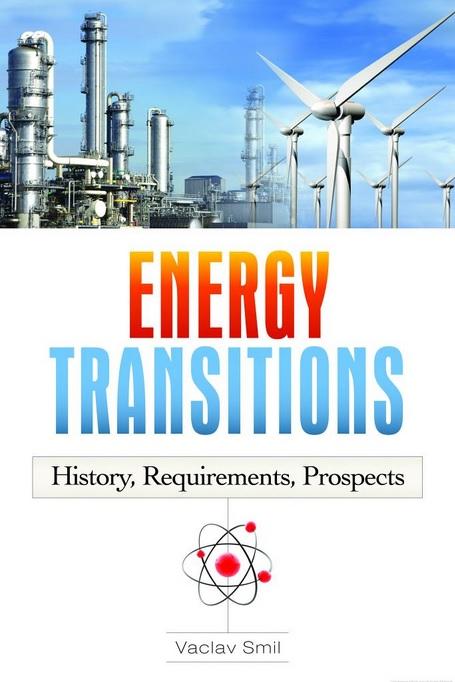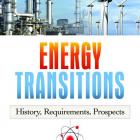Smil, Vaclav. Energy Transitions: History, Requirements, Prospects. Santa Barbara: Praeger/ABC CLIO, 2010.
Energy transitions are fundamental processes behind the evolution of human societies: they both drive and are driven by technical, economic, and social changes. In a bold and provocative argument, Energy Transitions: History, Requirements, Prospects describes the history of modern society’s dependence on fossil fuels and the prospects for the transition to a nonfossil world. Vaclav Smil, who has published more on various aspects of energy than any working scientist, makes it clear that this transition will not be accomplished easily, and that it cannot be accomplished within the timetables established by the Obama administration.
The book begins with a survey of the basic properties of modern energy systems. It then offers detailed explanations of universal patterns of energy transitions, the peculiarities of changing energy use in the world’s leading economies, and the coming shifts from fossil fuels to renewable conversions. Specific cases of these transitions are analyzed for eight of the world’s leading energy consumers. The author closes with perspectives on the nature and pace of the coming energy transition to renewable conversions. (Source: Praeger Publishing)
- Smil, Vaclav. Energy at the Crossroads: Global Perspectives and Uncertainties. Cambridge: MIT Press, 2005.
- Smil, Vaclav. Creating the Twentieth Century: Technical Innovations of 1867-1914 and Their Lasting Impact. Oxford and New York: Oxford University Press, 2005.
- Jevons, William Stanley. The Coal Question: An Inquiry Concerning the Progress of the Nation, and the Probable Exhaustion of our Coal-Mines. 2nd, rev. edition. London: Macmillan, 1866. E-book
- Droege, Peter. 100% Renewable: Energy Autonomy in Action. London: Earthscan, 2009.
- McKibbin, Warwick J. "Environmental Consequences of Rising Energy Use in China."Asian Economic Policy Review 1, no. 1 (2006): 157–74.
- Scheer, Hermann. Energy Autonomy: The Economic, Social and Technological Case for Renewable Energy. London: Earthscan, 2007.



